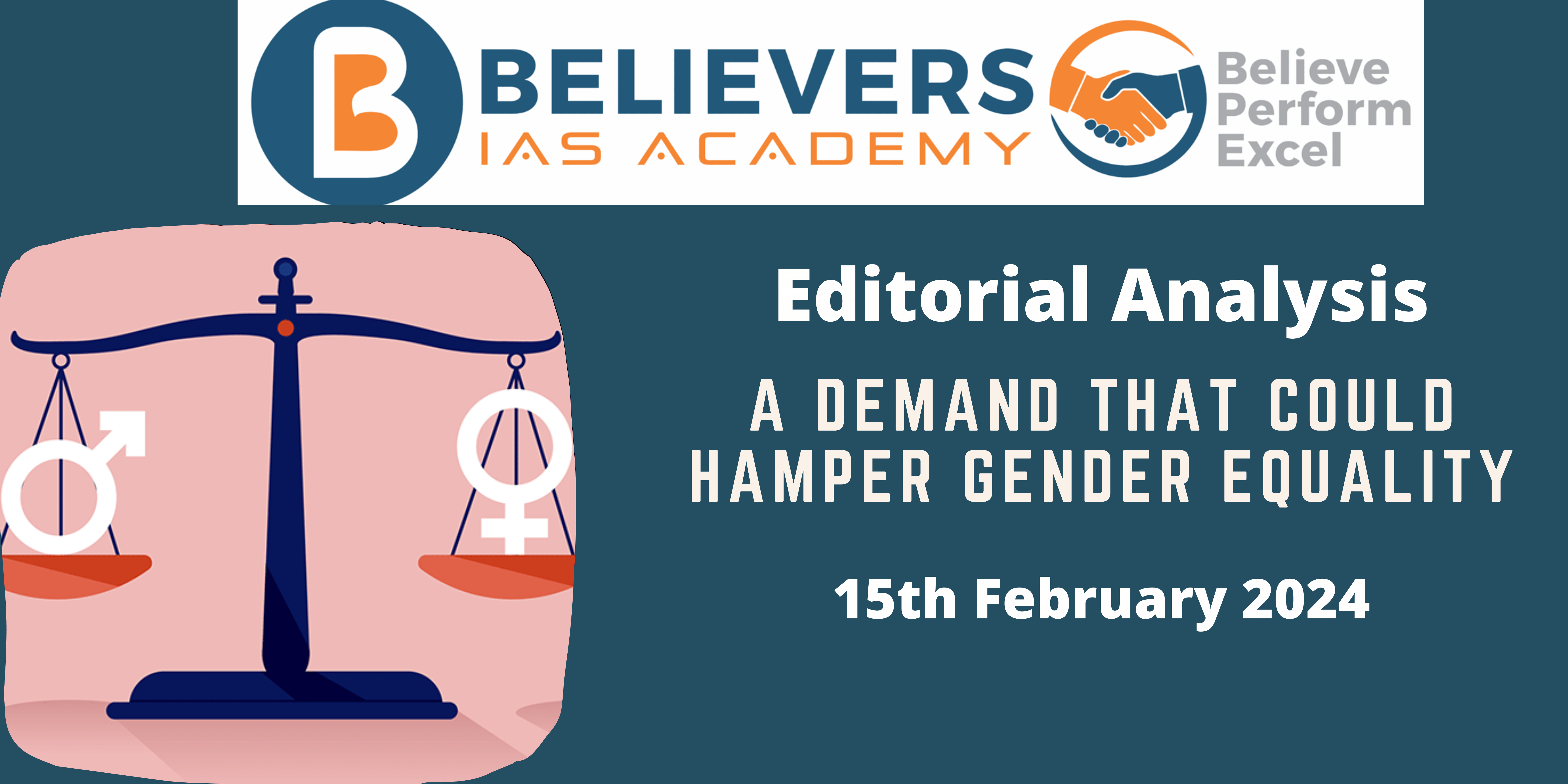A demand that could hamper gender equality
Context:
The article discusses the contentious issue of providing paid leave for menstruation and its potential implications on gender equality and societal attitudes towards menstruation.
- It highlights the challenges faced by women in the workforce and examines the global context of gender disparities, focusing on Japan’s experience with menstrual leave policies.
Relevance:
GS – 01 (Issues Related to Women, Social Empowerment)
Prelims:
Public Interest Litigation, Right of Women to Menstrual Leave and Free Access to Menstrual Health Products Bill, 2022.
What is Menstrual Leave:
- It refers to a policy where women in the workplace can take paid or unpaid leave from work when experiencing painful menstrual symptoms.
- Although its a relatively new concept it is gaining more attention in recent years as more countries and companies are considering on its implementation.
Arguments against menstrual leave:
- Discrimination Risk: Offering menstrual leave could lead to perceptions of female employees as less capable or dedicated compared to male colleagues, potentially perpetuating gender bias.
- Productivity Concerns: Critics worry that granting time off for menstruation may lower productivity levels, posing a threat to business efficiency and performance.
- Implementation Hurdles: Small and medium-sized enterprises may face difficulties in enforcing menstrual leave policies, struggling to manage workforce logistics with additional days off.
Menstrual Leave Policies Worldwide:
- Among the nations endorsing menstrual leave are Spain, Japan, Indonesia, the Philippines, Taiwan, South Korea, Zambia, Vietnam, and South Korea.
- Spain stands as the pioneering European nation to provide paid menstrual leave to its workers, offering three days of menstrual leave monthly, extendable to five days.
Dimensions of the Article:
- Combatting Discrimination: Sabrimala and Menstrual Leave Advocacy
- Global Gender Disparities: Workforce Implications
- Rejecting Special Treatment: Consequences and Concerns
Combatting Discrimination: Sabrimala and Menstrual Leave Advocacy
- Addressing the Sabrimala temple issue as a microcosm of broader struggles against menstruation-related discrimination, the article challenges the notion of labeling all menstruating individuals as ‘unfit’ through demands for paid leave.
- It argues that such blanket categorizations hinder the empowerment of women and reinforce harmful gender stereotypes.
Global Gender Disparities: Workforce Implications
- Drawing from the insights of the World Economic Forum’s Global Gender Gap Report 2021, this section illuminates the widening global gender gap and its repercussions on women’s participation in the workforce and leadership roles.
- It warns against the potential negative effects of mandating menstrual leave on already existing disparities, including further dissuading companies from hiring women and perpetuating societal stigma surrounding menstruation.
Rejecting Special Treatment: Consequences and Concerns
- Critiquing the concept of granting ‘special status’ to menstruating women, the article argues that such measures validate social stigma and worsen period shaming.
- It references data from the National Family Health Survey to highlight the challenges women face in accessing menstrual hygiene products, cautioning against policies that might inadvertently widen the gender gap and perpetuate discriminatory practices.
Conclusion:
In conclusion, the article underscores the importance of challenging discriminatory practices and promoting gender equality in addressing menstruation-related issues. While acknowledging the complexities and challenges involved, it calls for concerted efforts to empower women in the workforce and combat social stigma surrounding menstruation, ultimately fostering a more inclusive and equitable society for all.



